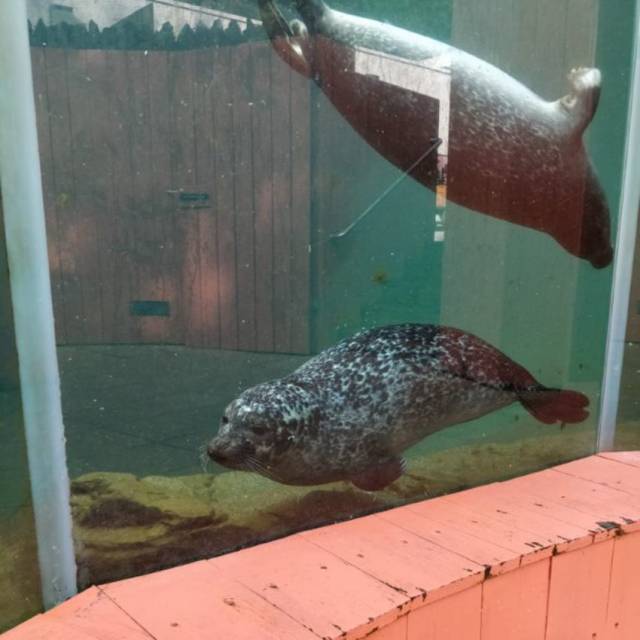Two juvenile seals named Ariel and Merida after the Disney princesses are part of a novel marine research project using the latest technology to record and understand harbour seals’ behaviour.
In a first for Northern Ireland, the Exploris Aquarium in Portaferry, Co Down has teamed up with University College Cork as part of the EU-funded, Loughs Agency-led SeaMonitor project to tag the female rehabilitated seals prior to their release from Knockinelder Beach in Co Down yesterday (Sunday 17 November).
Although seal pups have been rehabilitated and released by Exploris since 1989, this is the first time they have been tracked following release to give scientists a better understanding of how they fair post-release.
‘Although seal pups have been rehabilitated by Exploris since 1989, this is the first time they have been tracked following release’
Dr Mark Jessop, lead scientist from UCC, said: “We use state-of-the-art tags glued to the seals’ fur which drop off naturally during the seal’s annual moult, but until then provide information on where the seals are going as well as their dive behaviour.
“This gives us unique insights into post-rehabilitation survival and how juvenile seals learn to forage successfully in the wild.”
It is hoped that the data will be used to inform better management and protection for harbour seals.
The release of the two seals marks the first this season from Exploris Aquarium, NI’s only seal rehabilitation facility — with more releases to come.
“On average we take in about two dozen seals every year,” said Exploris curator, Peter Williams. “Seals are a protected species here in the UK and Europe so at Exploris we take in seal pups from all over the Northern Irish coast that have succumb to illness or have been affected by human interference and as a result abandoned by their mothers.”
Loughs Agency chief executive Sharon McMahon added: “This is an especially exciting time as the seals are the first species to be monitored since the project launched earlier this year.
“The agency is proud to be leading the way alongside expert colleagues from statutory and academic institutions and a range of stakeholders that will ultimately produce dynamic management plans for some of our most important and vulnerable species.”
‘These achievements ensure the safeguarding of our shared marine environment’
Discussing the importance of this work, Gina McIntyre, CEO of the Special EU Programmes Body, said: “I’m delighted to hear about the progress of this pioneering EU INTERREG cross-border project, which has seen a tremendous amount of development in such a short space of time.
“These achievements ensure the safeguarding of our shared marine environment and continue the necessary conservation work to protect priority species and habitats just like Ariel and Merida.
“The significant progress so far can be attributed to the strong cross-border partnership, combined with innovative marine technology. The expertise and determination of SeaMonitor’s project partners is helping push the boundaries of marine research in the seas not only around Northern Ireland, but in Ireland and Western Scotland.”
The work is part of SeaMonitor — a unique marine research project, the first of its kind in Europe, studying the seas around Ireland, Western Scotland and Northern Ireland.
The project is led by the Loughs Agency and supported by another eight leading marine research institutions, using innovative marine species tracking technology to better understand and protect vulnerable marine life in our oceans.































































